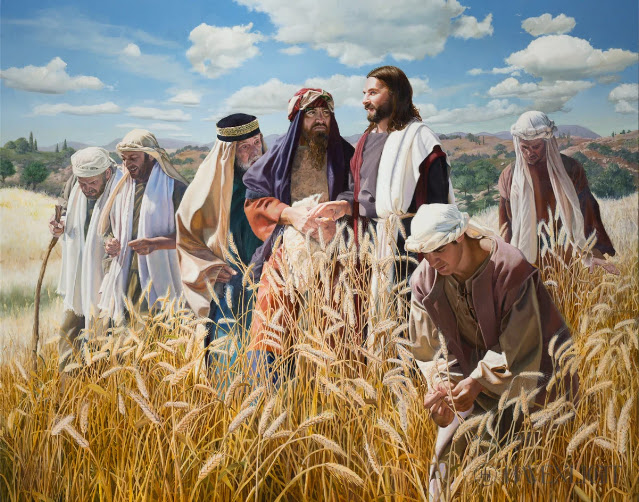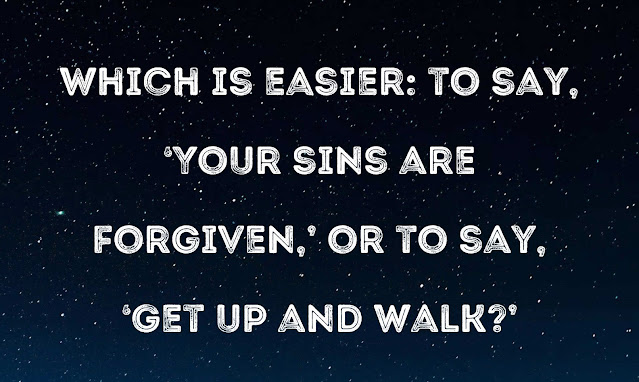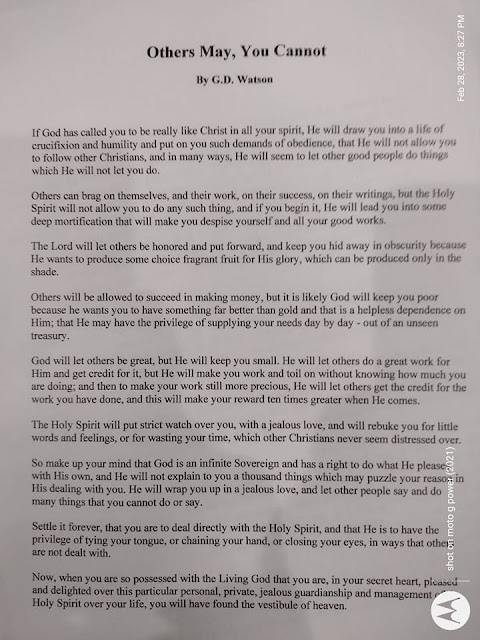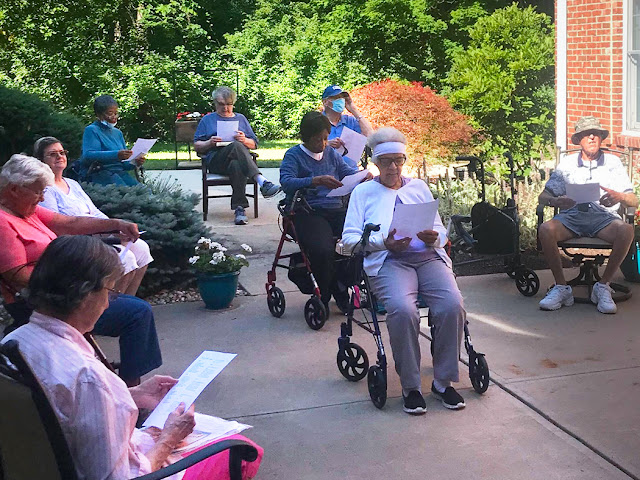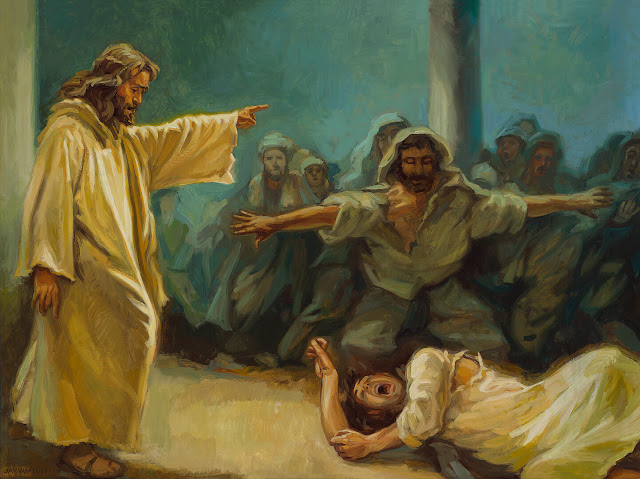
Do you ever feel in your life like you’ve been tested in this area already? I know I’ve felt that way. Lord I went through this test already. I’ve given you my problems. I’ve given you my sins. But God says, I will test you again, and your faith will be proven.
David went from being a shepherd boy, alone with his sheep, trusted with only a little bit, and he showed himself faithful. His life shot into a new time after his courageous victory over Goliath. We saw him become a leader in Saul’s army. He won great victories. But then we saw Saul become jealous of David, and he even tried to kill him. David went on the run then, all by himself. But as he hid in the caves over the months many gathered around him, until he had 600 men around him. God was with him. And David spared Saul’s life in the cave, when he could’ve killed him.
David went from being a shepherd boy, alone with his sheep, trusted with only a little bit, and he showed himself faithful. His life shot into a new time after his courageous victory over Goliath. We saw him become a leader in Saul’s army. He won great victories. But then we saw Saul become jealous of David, and he even tried to kill him. David went on the run then, all by himself. But as he hid in the caves over the months many gathered around him, until he had 600 men around him. God was with him. And David spared Saul’s life in the cave, when he could’ve killed him.
Yet David will be tested again. It's the same with us today. We're tested once, then again. And we think to ourselves, "again Lord? Not again, can it be? I gave you my sin. I gave my struggles. I gave you my nightmares." But God says you’ve given me your struggles, your difficulties, you’ve sent away Hagar, but I want your heart, the things you love, you things you enjoy.
We gave him our sins. Now he wants our heart. He wants to take away the bad, yes, but he wants us to give up our hopes and our dreams to Him. Abraham gave up Hagar, and he must’ve thought this is enough, I’ve sent her and Ishmael away. But God says what about the apple of your eye, what about what you love? What about Isaac? Would you be willing to even give him up, for me?
David has already spared Saul’s life once, in a situation where he is running. Now there is a new situation, but the same life is in his hands, what will he do?
It says in verses 1-4, “Now some men from Ziph came to Saul at Gibeah to tell him, “David is hiding on the hill of Hakilah, which overlooks Jeshimon.”
2 So Saul took 3,000 of Israel’s elite troops and went to hunt him down in the wilderness of Ziph. 3 Saul camped along the road beside the hill of Hakilah, near Jeshimon, where David was hiding. When David learned that Saul had come after him into the wilderness, 4 he sent out spies to verify the report of Saul’s arrival.”
So many times now, Saul changes his mind. He realizes David isn’t his enemy. Alright David is my lovely friend again. Then he gets jealous again and throws a spear at him. Then David spares his life in the cave and he leaves him in peace and says we’re ok now. Then he changes his mind again and comes after him again.
First point today, stick to your decision. If you’ve chosen God’s way, stick to that decision. Don’t be double minded, constantly floating between two opinions. I had a friend like that, close friend, he could never up his mind, he would always float between two decisions. If you’ve come to God, you make a faith commitment. You keep that faith. You stick to your guns, you stick to your decision, even when it’s hard. That’s a fact of character.
And if you don’t, you’ll find in everything in life you’ll start to wobble. We don’t want to be wobbly people. We want to stand firm in Christ.
David had sent spies to view Saul’s camp. But now David himself goes with two of his closest friends.
It says in verses 5-8: David slipped over to Saul’s camp one night to look around. Saul and Abner son of Ner, the commander of his army, were sleeping inside a ring formed by the slumbering warriors. 6 “Who will volunteer to go in there with me?” David asked Ahimelech the Hittite and Abishai son of Zeruiah, Joab’s brother.
“I’ll go with you,” Abishai replied. 7 So David and Abishai went right into Saul’s camp and found him asleep, with his spear stuck in the ground beside his head. Abner and the soldiers were lying asleep around him.
“God has surely handed your enemy over to you this time!” Abishai whispered to David. “Let me pin him to the ground with one thrust of the spear; I won’t need to strike twice!”
Once again, the life of Saul is in the hands of David. They are in a deep sleep, and David can do as he pleases. What will he do?
Second point today, God will put you in a situation where you have a difficult choice to make. I’ve found that time and again in my life. Many things are not easy for a Christian. God tests and refines our hearts. That’s what I want you to see today: God is looking at the heart again and again. We can adjust the course of our heart toward good or evil by our choices. Our choices determine the course of our heart. But, only God can transform a heart. Only God can turn a heart of stone to flesh. Once our heart is flesh, we must then guard our heart (Proverb 4:23).
Last time David stumbled upon Saul by accident in the cave. This time David goes to Saul and finds him. He could kill him right there. But the Holy Spirit is moving in David’s heart.
In verses 9-12: “No!” David said. “Don’t kill him. For who can remain innocent after attacking the Lord’s anointed one? 10 Surely the Lord will strike Saul down someday, or he will die of old age or in battle. 11 The Lord forbid that I should kill the one he has anointed! But take his spear and that jug of water beside his head, and then let’s get out of here!”
12 So David took the spear and jug of water that were near Saul’s head. Then he and Abishai got away without anyone seeing them or even waking up, because the Lord had put Saul’s men into a deep sleep.”
God has saved me from many temptations over the years. They simply don’t come. I’m sure that’s true for you as well. He’s protected you from temptations that would’ve destroyed you. From a man, a woman, a drug, a job, a toxic friendship, a food, a car, but, he will also bring a particular temptation in front of us, to test us, as well. God keeps Saul’s men asleep. Yes, to help David. But also to allow for this moment to play out.
David’s heart is again proven to be a godly heart, a man after God’s own heart.
Should I try to harm the one who is against me? No, certainly not. Should I speak up boldly about the truth? Yes, I certainly should. But who am I to harm the Lord’s anointed one? God has placed Saul in that position at that time. And eventually, Saul would fall, but David would again let God do that. It’s not his choice to make.
That’s our third point, let God orchestrate events in your life. Don’t take control. Let go of control.
But do your part. That’s the serenity prayer. Surrender to God what belongs to God, do your part in what you can change, and seek wisdom from God to know the difference between the two.
Let go of control. Let go, and let God. Stop trying to manipulate events and let God run your life. Surrender it to God.
Let’s see what happens next: (verses 13-20)
David climbed the hill opposite the camp until he was at a safe distance. 14 Then he shouted down to the soldiers and to Abner son of Ner, “Wake up, Abner!”
“Who is it?” Abner demanded.
15 “Well, Abner, you’re a great man, aren’t you?” David taunted. “Where in all Israel is there anyone as mighty? So why haven’t you guarded your master the king when someone came to kill him? 16 This isn’t good at all! I swear by the Lord that you and your men deserve to die, because you failed to protect your master, the Lord’s anointed! Look around! Where are the king’s spear and the jug of water that were beside his head?”
17 Saul recognized David’s voice and called out, “Is that you, my son David?”
Point number 4, show the proof. Take the evidence. If you’re going to do the right thing, also make sure you have the evidence that you did the right thing. Then no one can say it didn’t happen. David takes Saul’s spear and water jug. Disarms him. But doesn’t harm him. David could climb back up the hill and say I spared your life Saul, but if he didn't have proof, Saul could say, "you're lying!" So David takes the spear and the bottle of water as proof. Keep that principle in mind.
And David replied, “Yes, my lord the king. 18 Why are you chasing me? What have I done? What is my crime? 19 But now let my lord the king listen to his servant. If the Lord has stirred you up against me, then let him accept my offering. But if this is simply a human scheme, then may those involved be cursed by the Lord. For they have driven me from my home, so I can no longer live among the Lord’s people, and they have said, ‘Go, worship pagan gods.’ 20 Must I die on foreign soil, far from the presence of the Lord? Why has the king of Israel come out to search for a single flea? Why does he hunt me down like a partridge on the mountains?”
David calls out King Saul on his poor actions.
We gave him our sins. Now he wants our heart. He wants to take away the bad, yes, but he wants us to give up our hopes and our dreams to Him. Abraham gave up Hagar, and he must’ve thought this is enough, I’ve sent her and Ishmael away. But God says what about the apple of your eye, what about what you love? What about Isaac? Would you be willing to even give him up, for me?
David has already spared Saul’s life once, in a situation where he is running. Now there is a new situation, but the same life is in his hands, what will he do?
It says in verses 1-4, “Now some men from Ziph came to Saul at Gibeah to tell him, “David is hiding on the hill of Hakilah, which overlooks Jeshimon.”
2 So Saul took 3,000 of Israel’s elite troops and went to hunt him down in the wilderness of Ziph. 3 Saul camped along the road beside the hill of Hakilah, near Jeshimon, where David was hiding. When David learned that Saul had come after him into the wilderness, 4 he sent out spies to verify the report of Saul’s arrival.”
So many times now, Saul changes his mind. He realizes David isn’t his enemy. Alright David is my lovely friend again. Then he gets jealous again and throws a spear at him. Then David spares his life in the cave and he leaves him in peace and says we’re ok now. Then he changes his mind again and comes after him again.
First point today, stick to your decision. If you’ve chosen God’s way, stick to that decision. Don’t be double minded, constantly floating between two opinions. I had a friend like that, close friend, he could never up his mind, he would always float between two decisions. If you’ve come to God, you make a faith commitment. You keep that faith. You stick to your guns, you stick to your decision, even when it’s hard. That’s a fact of character.
And if you don’t, you’ll find in everything in life you’ll start to wobble. We don’t want to be wobbly people. We want to stand firm in Christ.
David had sent spies to view Saul’s camp. But now David himself goes with two of his closest friends.
It says in verses 5-8: David slipped over to Saul’s camp one night to look around. Saul and Abner son of Ner, the commander of his army, were sleeping inside a ring formed by the slumbering warriors. 6 “Who will volunteer to go in there with me?” David asked Ahimelech the Hittite and Abishai son of Zeruiah, Joab’s brother.
“I’ll go with you,” Abishai replied. 7 So David and Abishai went right into Saul’s camp and found him asleep, with his spear stuck in the ground beside his head. Abner and the soldiers were lying asleep around him.
“God has surely handed your enemy over to you this time!” Abishai whispered to David. “Let me pin him to the ground with one thrust of the spear; I won’t need to strike twice!”
Once again, the life of Saul is in the hands of David. They are in a deep sleep, and David can do as he pleases. What will he do?
Second point today, God will put you in a situation where you have a difficult choice to make. I’ve found that time and again in my life. Many things are not easy for a Christian. God tests and refines our hearts. That’s what I want you to see today: God is looking at the heart again and again. We can adjust the course of our heart toward good or evil by our choices. Our choices determine the course of our heart. But, only God can transform a heart. Only God can turn a heart of stone to flesh. Once our heart is flesh, we must then guard our heart (Proverb 4:23).
Last time David stumbled upon Saul by accident in the cave. This time David goes to Saul and finds him. He could kill him right there. But the Holy Spirit is moving in David’s heart.
In verses 9-12: “No!” David said. “Don’t kill him. For who can remain innocent after attacking the Lord’s anointed one? 10 Surely the Lord will strike Saul down someday, or he will die of old age or in battle. 11 The Lord forbid that I should kill the one he has anointed! But take his spear and that jug of water beside his head, and then let’s get out of here!”
12 So David took the spear and jug of water that were near Saul’s head. Then he and Abishai got away without anyone seeing them or even waking up, because the Lord had put Saul’s men into a deep sleep.”
God has saved me from many temptations over the years. They simply don’t come. I’m sure that’s true for you as well. He’s protected you from temptations that would’ve destroyed you. From a man, a woman, a drug, a job, a toxic friendship, a food, a car, but, he will also bring a particular temptation in front of us, to test us, as well. God keeps Saul’s men asleep. Yes, to help David. But also to allow for this moment to play out.
David’s heart is again proven to be a godly heart, a man after God’s own heart.
Should I try to harm the one who is against me? No, certainly not. Should I speak up boldly about the truth? Yes, I certainly should. But who am I to harm the Lord’s anointed one? God has placed Saul in that position at that time. And eventually, Saul would fall, but David would again let God do that. It’s not his choice to make.
That’s our third point, let God orchestrate events in your life. Don’t take control. Let go of control.
But do your part. That’s the serenity prayer. Surrender to God what belongs to God, do your part in what you can change, and seek wisdom from God to know the difference between the two.
Let go of control. Let go, and let God. Stop trying to manipulate events and let God run your life. Surrender it to God.
Let’s see what happens next: (verses 13-20)
David climbed the hill opposite the camp until he was at a safe distance. 14 Then he shouted down to the soldiers and to Abner son of Ner, “Wake up, Abner!”
“Who is it?” Abner demanded.
15 “Well, Abner, you’re a great man, aren’t you?” David taunted. “Where in all Israel is there anyone as mighty? So why haven’t you guarded your master the king when someone came to kill him? 16 This isn’t good at all! I swear by the Lord that you and your men deserve to die, because you failed to protect your master, the Lord’s anointed! Look around! Where are the king’s spear and the jug of water that were beside his head?”
17 Saul recognized David’s voice and called out, “Is that you, my son David?”
Point number 4, show the proof. Take the evidence. If you’re going to do the right thing, also make sure you have the evidence that you did the right thing. Then no one can say it didn’t happen. David takes Saul’s spear and water jug. Disarms him. But doesn’t harm him. David could climb back up the hill and say I spared your life Saul, but if he didn't have proof, Saul could say, "you're lying!" So David takes the spear and the bottle of water as proof. Keep that principle in mind.
And David replied, “Yes, my lord the king. 18 Why are you chasing me? What have I done? What is my crime? 19 But now let my lord the king listen to his servant. If the Lord has stirred you up against me, then let him accept my offering. But if this is simply a human scheme, then may those involved be cursed by the Lord. For they have driven me from my home, so I can no longer live among the Lord’s people, and they have said, ‘Go, worship pagan gods.’ 20 Must I die on foreign soil, far from the presence of the Lord? Why has the king of Israel come out to search for a single flea? Why does he hunt me down like a partridge on the mountains?”
David calls out King Saul on his poor actions.
Point number five, rebuke and correct one another. Call each other out. Correct each other in a loving way. We need to do that. Gently, with love, in the right spirit, bur do be bold in correcting each other. We all need that. We need someone to speak into our lives the truth when we are wrong.
And we must be willing to listen to that voice. Let me repeat that, we must be willing to listen. And realize in the moment it’s going to hurt. But when they speak directly to you, correcting you, your response should be to be impressed. Wow, that took guts to do, thank you. Thank you for that. I’m going to think about that. Don’t get angry and storm out. That’s a foolish attitude. Instead listen, and realize the love it took for them to do that. That’s a true friend, to call you out lovingly when you’re wrong.
David does that again for Saul, second time now, he calls him out.
Sau’s response is this, verse 21: Then Saul confessed, “I have sinned. Come back home, my son, and I will no longer try to harm you, for you valued my life today. I have been a fool and very, very wrong.”
Point six, just because you’ve made things right, doesn’t mean you need to move back in. Just because you’ve corrected someone, an ex-lover or friend, doesn’t meant you need to renew the friendship or get back together. David understands that. Saul probably isn’t going to change. Saul invites him back. But David has wisdom he knows Saul will probably change his mind again and try to kill him again later.
The whole incident ends like this, verses 22-25:
“Here is your spear, O king,” David replied. “Let one of your young men come over and get it. 23 The Lord gives his own reward for doing good and for being loyal, and I refused to kill you even when the Lord placed you in my power, for you are the Lord’s anointed one. 24 Now may the Lord value my life, even as I have valued yours today. May he rescue me from all my troubles.”
And Saul said to David, “Blessings on you, my son David. You will do many heroic deeds, and you will surely succeed.” Then David went away, and Saul returned home.”
Saul again makes nice with David. David knows it most likely won’t last.
But David is ultimately talking to God in this last conversation here. He says, “May the Lord rescue me from my troubles.”
And we must be willing to listen to that voice. Let me repeat that, we must be willing to listen. And realize in the moment it’s going to hurt. But when they speak directly to you, correcting you, your response should be to be impressed. Wow, that took guts to do, thank you. Thank you for that. I’m going to think about that. Don’t get angry and storm out. That’s a foolish attitude. Instead listen, and realize the love it took for them to do that. That’s a true friend, to call you out lovingly when you’re wrong.
David does that again for Saul, second time now, he calls him out.
Sau’s response is this, verse 21: Then Saul confessed, “I have sinned. Come back home, my son, and I will no longer try to harm you, for you valued my life today. I have been a fool and very, very wrong.”
Point six, just because you’ve made things right, doesn’t mean you need to move back in. Just because you’ve corrected someone, an ex-lover or friend, doesn’t meant you need to renew the friendship or get back together. David understands that. Saul probably isn’t going to change. Saul invites him back. But David has wisdom he knows Saul will probably change his mind again and try to kill him again later.
The whole incident ends like this, verses 22-25:
“Here is your spear, O king,” David replied. “Let one of your young men come over and get it. 23 The Lord gives his own reward for doing good and for being loyal, and I refused to kill you even when the Lord placed you in my power, for you are the Lord’s anointed one. 24 Now may the Lord value my life, even as I have valued yours today. May he rescue me from all my troubles.”
And Saul said to David, “Blessings on you, my son David. You will do many heroic deeds, and you will surely succeed.” Then David went away, and Saul returned home.”
Saul again makes nice with David. David knows it most likely won’t last.
But David is ultimately talking to God in this last conversation here. He says, “May the Lord rescue me from my troubles.”
Point number 7, if we honor God he will protect us. And I think that’s biblical, to say, that when we honor God with our choices, when we serve Him, and when we care for the needs of the poor, he then helps us when we are in trouble. It’s not a give and take sort of thing. We are under grace. But, wise choices, submission to God, is going to lead to God protecting us in times of trouble. Similarly, if we don’t really follow God, and then get into trouble, then ask "God please get me outa this mess and I won’t do it again," it’s not likely that God will answer that prayer. Though maybe he will.
So in conclusion today, let’s review. Our main points, and the key is, how do we put them into action in our lives. That’s the real test. Anyone can sit here and listen, the hard part is applying it.
Main Points:
1. Stick to your decision (to serve God)
2. God will lead you toward difficult choices (test you)
3. Let God control your life (let go and let God lead)
4. Show the evidence (disarm but don’t harm)
5. Correct each other with loving truth (rebuke your neighbor)
6. Don’t move back into a bad situation (set boundaries after forgiveness)
7. If we honor God, he protects us (protection in times of trouble)
So in conclusion today, let’s review. Our main points, and the key is, how do we put them into action in our lives. That’s the real test. Anyone can sit here and listen, the hard part is applying it.
Main Points:
1. Stick to your decision (to serve God)
2. God will lead you toward difficult choices (test you)
3. Let God control your life (let go and let God lead)
4. Show the evidence (disarm but don’t harm)
5. Correct each other with loving truth (rebuke your neighbor)
6. Don’t move back into a bad situation (set boundaries after forgiveness)
7. If we honor God, he protects us (protection in times of trouble)



